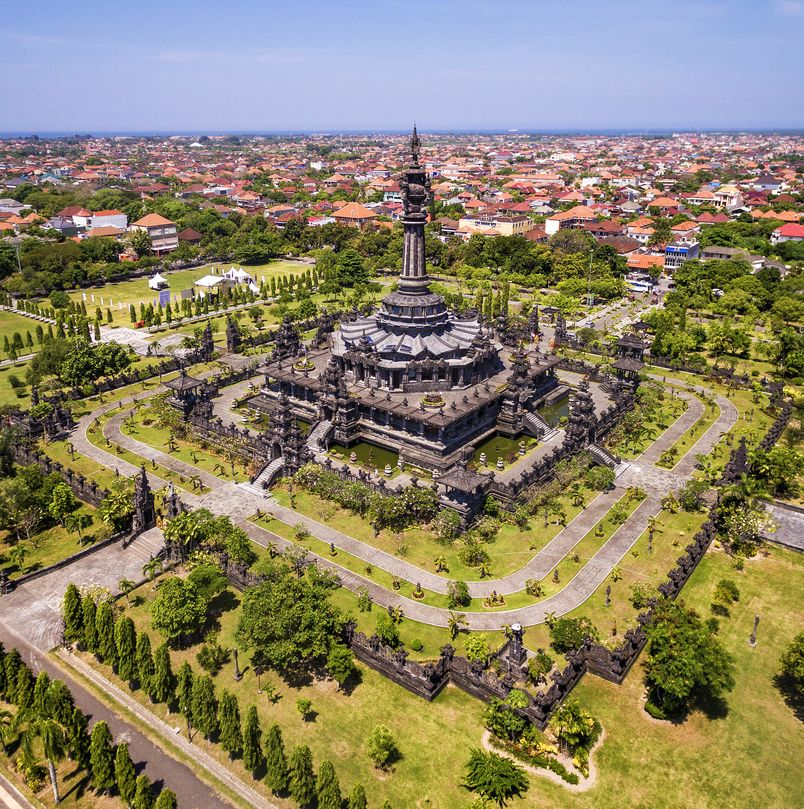Amazing Reasons Why Denpasar is the Perfect Affordable Escape in Bali
Introduction: Discovering Denpasar
When travelers plan a trip to Bali, they often think of Ubud’s rice terraces, Kuta’s beaches, or Uluwatu’s cliffs. Yet hidden in plain sight is Denpasar, Bali’s capital city. Far from just being an administrative hub, Denpasar offers colorful markets, historical temples, cultural performances, and affordable food and shopping.
- Introduction: Discovering Denpasar
- History of Denpasar
- Fascinating Facts About Denpasar
- Timeline of Denpasar’s Growth
- Significance of Denpasar
- Wishing and Emotional Experience
- Importance in Daily Life and Society
- FAQs About Denpasar
- Important Points for Travelers
- Conclusion: Daily Life Impact and Final Thoughts
Unlike tourist-packed resorts, Denpasar reveals authentic Balinese life. For those searching for cheap vacation ideas, Denpasar is a treasure chest—you can enjoy delicious street food for just a dollar, explore traditional art markets, visit stunning temples, and even join local festivals without breaking the bank.
This article dives deep into the history, facts, timeline, significance, cultural value, FAQs, and life lessons that Denpasar offers, proving why it’s more than just a city—it’s an experience of real Bali.
History of Denpasar
Denpasar’s history is deeply rooted in Bali’s royal and cultural heritage.
Ancient Kingdoms: The area was once part of the Badung Kingdom, which thrived in the 18th and 19th centuries.
Colonial Era: In 1906, the Puputan Badung took place—a tragic but heroic mass resistance against Dutch colonial forces, symbolizing Balinese pride and honor.
Independence Period: After Indonesia’s independence in 1945, Denpasar developed as a cultural and economic hub.
Modern Capital: By 1958, Denpasar officially became the capital of Bali Province, evolving into the vibrant city it is today.
Denpasar’s blend of history, resistance, and cultural pride makes it more than just Bali’s capital—it is the heartbeat of the island.
Fascinating Facts About Denpasar
Denpasar means “north of the market,” reflecting its historical role as a trading hub.
It is Bali’s largest city, with over 800,000 residents.
The famous Puputan Square is a memorial to Balinese warriors who resisted Dutch rule.
Denpasar hosts the Bali Arts Festival every June, a month-long celebration of dance, music, and art.
Pasar Badung is the biggest traditional market in Bali, selling everything from spices to textiles.
Denpasar is home to the Jagatnatha Temple, dedicated to the supreme god Sang Hyang Widi Wasa.
It offers some of the cheapest food in Bali, with local warungs (small eateries) serving meals for under $2.
Unlike touristy towns, Denpasar showcases authentic Balinese daily life.
The city is less crowded, making it more peaceful compared to Kuta or Seminyak.
Denpasar is strategically located, just a short ride away from beaches, temples, and cultural sites.
Timeline of Denpasar’s Growth
18th Century – Part of the Badung Kingdom.
1906 – Puputan Badung: Balinese resistance against Dutch forces.
1945 – Indonesia gains independence; Denpasar becomes a regional hub.
1958 – Officially declared the capital of Bali Province.
1970s–1980s – Tourism in Bali grows; Denpasar expands as a cultural city.
2000s – Becomes a major administrative and economic center.
2025 – Recognized as one of Bali’s most affordable and culturally rich vacation destinations.
Significance of Denpasar
Denpasar is not just important politically—it holds cultural and spiritual significance:
Cultural Significance: Home to traditional markets, art centers, and Balinese dance festivals.
Historical Significance: Site of the Puputan Badung, symbolizing bravery and resilience.
Economic Significance: A center for trade, business, and tourism.
Spiritual Significance: Temples like Jagatnatha represent Bali’s religious harmony.
Tourism Significance: Offers cheap yet rich cultural experiences for budget travelers.
Wishing and Emotional Experience
Denpasar is not just a city—it’s a place where people come with dreams, hopes, and wishes:
At Jagatnatha Temple, locals make daily offerings and wish for prosperity and harmony.
Travelers often wish for peace and courage when visiting Puputan Square, inspired by the warriors’ sacrifice.
The Bali Arts Festival allows visitors to witness traditional performances, leaving them inspired to carry Balinese creativity into their own lives.
In this way, Denpasar becomes a place of both personal reflection and cultural celebration.
Importance in Daily Life and Society
Denpasar plays a vital role in Bali’s daily life and has impacts beyond tourism:
Cultural Hub – It preserves Balinese traditions through art, festivals, and markets.
Affordable Tourism – Denpasar shows travelers that they can enjoy Bali without spending much.
Economic Role – Provides jobs in trade, handicrafts, food, and services.
Educational Importance – Many schools and art institutes in Denpasar keep cultural education alive.
Symbol of Resilience – The Puputan Badung story inspires both locals and visitors with lessons of bravery.
Mental Well-being – Exploring Denpasar’s temples and calm neighborhoods helps travelers de-stress and reconnect with authentic culture.
FAQs About Denpasar
Q1: Is Denpasar worth visiting?
A: Yes! Denpasar offers authentic Balinese culture, cheap markets, and historical sites away from crowded tourist areas.
Q2: What is Denpasar best known for?
A: Its traditional markets, Bali Arts Festival, Jagatnatha Temple, and Puputan Square.
Q3: How much does it cost to explore Denpasar?
A: Very little! Street food starts at $1–2, and many attractions are free or cost less than $3.
Q4: What is the best time to visit?
A: June for the Bali Arts Festival, or April–October (dry season) for comfortable sightseeing.
Q5: How far is Denpasar from Bali’s beaches?
A: Just 20–30 minutes from Sanur Beach and around 40 minutes from Kuta.
Important Points for Travelers
Explore Pasar Badung for an authentic shopping experience.
Don’t miss Jagatnatha Temple and Puputan Square.
Visit in June for the Bali Arts Festival.
Eat at local warungs for delicious cheap meals.
Respect local traditions and dress modestly at temples.
Conclusion: Daily Life Impact and Final Thoughts
Denpasar may not always be the first city that comes to mind when thinking of Bali, but it is a cultural powerhouse and one of the best cheap vacation ideas for travelers. It is a city where history, tradition, and modern life coexist beautifully.
For locals, Denpasar is a hub of culture, economy, and spirituality. For visitors, it is a chance to see real Balinese life at affordable costs. From making wishes at temples to tasting authentic Balinese food, Denpasar offers lessons of simplicity, resilience, and community spirit.
In our fast-paced modern lives, Denpasar reminds us that true richness lies not in luxury, but in authenticity. Whether you’re wandering through traditional markets, joining a festival, or simply watching daily prayers, you’ll realize Denpasar is more than a city—it’s a living soul of Bali.








